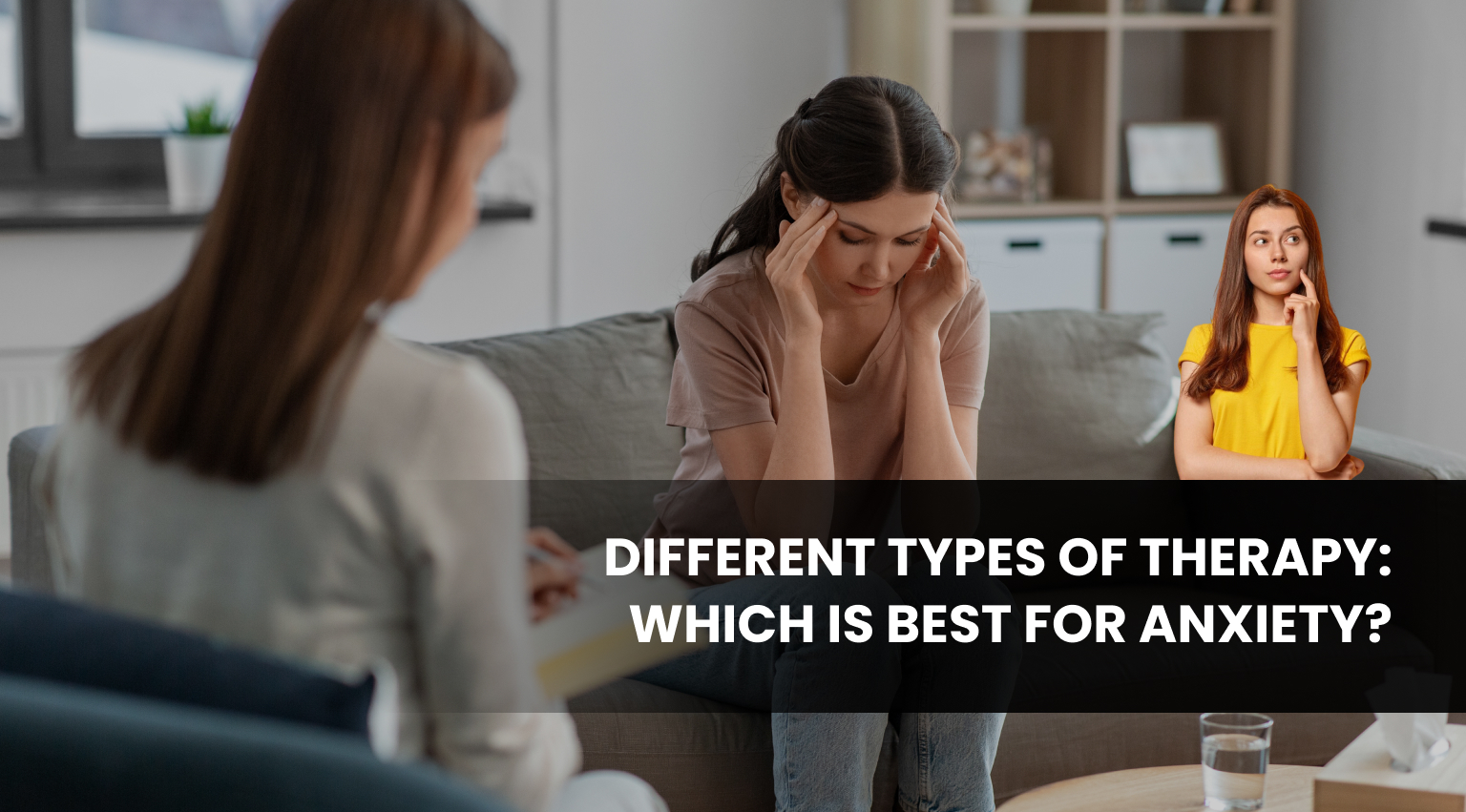
Anxiety affects one in three people these days. The fact that you don’t have to live with fear and anxiety is crucial. It might manifest as persistent anxiety, restlessness, racing thoughts, or even physical symptoms like trouble breathing and a rapid heartbeat.
Fortunately, if you have the best therapy for anxiety, it can help from a trusted place like Restore Therapist. People can feel more in charge of their lives and learn how to manage their symptoms with the correct help. However, with so many alternatives for therapy, you may be wondering which one is best for anxiety.
This article will go over the most common types of the best therapy for anxiety, their methods, and what to expect, so you’ve come to the right place. The goal is to help you make an informed decision about which type of support is best for you.
Cognitive behavioral therapy is known as one of the most effective treatments for anxiety. It identifies the negative thought patterns that lead to worry and replacing them with more sensible, wholesome ones.
This is the best anxiety therapy. A person with social anxiety, for example, can think that “everyone is judging me.” CBT helps disprove that notion and replace it with a more realistic assertion, such as “Most people are focused on themselves, not me.”
Why it functions:
Since CBT can be a short-term therapy, it is an excellent option for those needing targeted tactics and immediate outcomes.
Exposure is the best therapy for anxiety. It is a particular kind of cognitive behavioral therapy that assists people in gradually facing their fears instead of avoiding them. Gradual exposure reduces dread over time, but avoidance often exacerbates worry.
A person who is afraid of flying, for example, might first look at pictures of airplanes, then visit an airport, and finally do short flights. Retraining the brain to react less fearfully is facilitated by this meticulous technique.
Why it functions:
Someone who is nervous about public speaking, for instance, could nevertheless decide to speak if it fits with their professional objectives, learning to live with the discomfort as they go. Acceptance and commitment therapy best threpy for those.
The reason it works:
Through acceptance, resilience is increased.
Encourages people to live according to their own values.
makes it easier to deal with worried thoughts
DB blends stress-reduction and mindfulness practices with cognitive behavioral therapy.
Distress tolerance, emotional control, mindfulness, and interpersonal effectiveness are the four primary focuses of DBT, and it is the best therapy. These techniques are frequently extremely helpful to those with anxiety when their feelings become too much to handle.
Why it functions:
Psychodynamic therapy, which is usually connected to unresolved conflicts or traumatic events. Current ideas and feelings are shaped by unconscious habits and early interactions, which are examined by the therapist and client.
This is kind of therapy can result in profound psychological development and long-lasting transformation.
The reason it works:
Group therapy best therapy for anxiety, it brings together individuals who are facing comparable challenges. In a secure setting, sharing experiences can boost support and lessen feelings of loneliness.
It best therapy to hear about other people’s anxiety management techniques.
Why it functions:
Your personality, medical history, and particular symptoms will decide the best course of action. Which is best therapy for anxiety.
Restore Therapist focused on that selecting a therapist with whom you are comfortable is the most crucial step. Often, a solid therapeutic alliance is just as important as the kind of therapy.
You don’t have to deal with anxiety alone, even if it can feel overwhelming. The best therapy for anxiety provides a secure environment for developing resilience, learning new skills, and understanding your feelings like at Restore Therapist. There are numerous tried-and-true solutions to consider, even though there isn’t just one ideal therapy for anxiety.
Restore Therapist can assist you if you’re prepared to start along the path to recovery.
Individual needs and the sort of therapy will determine this. Psychodynamic therapy may be longer-term, whereas cognitive behavioral therapy may span 10–20 sessions. How regularly you use the skills outside of sessions also affects your progress.
Yes, many people find that therapy is effective on its own. However, Restore Therapist says that in cases of extreme anxiety, a combination of medicine and treatment may be suggested.
It’s acceptable to find another therapist if, after a few sessions, you don’t sense a connection. The secret to success is finding the correct fit.
Virtual treatment, particularly cognitive behavioral therapy, can be equally as successful as face-to-face sessions. Restore Therapist is utilizing technology as well. For those with hectic schedules or restricted access to nearby therapists, it’s a flexible choice.